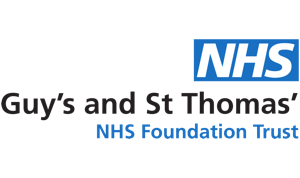Hospital Innovations confirm Lord Carter as keynote speaker
A raft of speakers has been announced for the Hospital Innovations Conference taking place in London later this month including Lord Carter of Coles who will give the keynote address on day 2 following his report on improving productivity in the NHS.
Hospital Innovations focuses on ‘Efficient productivity without compromising quality’ and sees a number of sessions looking at efficiency, new technologies, finance and procurement.
Speakers in the first session on day 1 which looks at Delivering Savings and Efficiency through Strategic Procurement on the opening morning, Tuesday 26 April include David Lawson, Chief Procurement Officer, Guy’s and St. Thomas’ NHS Foundation Trust and Gary Welch, Director of Procurement and Supply Chain, Oxford University Hospitals NHS Foundation Trust. The session is chaired by Alexandra Hammond from Essentia.
A recent BBC report announced ‘nearly every hospital in England is now in deficit as financial problems in the NHS threaten to spiral out of control. Of the 138 hospital trusts, just seven are still in surplus according to the 2015-16 third quarter accounts, which cover April to December. The figures also showed a total NHS trust overspend of £2.26bn once ambulance, mental health and community services were taken into account. Experts said performance was deteriorating at an “alarming rate”.
The deficit is already nearly triple what it was for the whole of the 2014-15 – and means the NHS is on track for one of its largest ever overspends. The figures – released by NHS regulators Monitor and the Trust Development Authority – cover 240 trusts in total, which between them they account for about two-thirds of the NHS’s £116bn budget.
Hospital Innovations aims to help those working in and with the National Health Service and Private sector, come up with solutions to historic issues and learn from others already making changes and the resulting savings seen by these trusts.
The sessions on Technology and Telehealth and Smart use of Space sees real examples from Shrewsbury and Telford NHS Hospital Trust and Guy’s and St Thomas’ NHS Foundation Trust. The speakers also include suppliers working with the trusts, Vodafone Healthcare and Vanguard Healthcare Solutions.
Patient Pathways and Driving Efficiencies, two key areas following the Carter report are addressed on the second day at the conference following Lord Carter’s address.
Patient Pathways looks at the impact decisions can have on the patient route. The efficiency of the whole patient journey is more important than the individual team’s efficiencies. The NHS is taking steps to reduce waiting times, however when this is implemented in one part of a hospital service it often highlights something else that prevents further improvement. For example, after extensive and detailed improvement work in ultrasound, a service improvement lead stated ‘without improving transport we can go no further to improve ultrasound services’. As a result, the hospital decided to review porter services.
Speakers include Daniel Reason, Site Services Manager and Lead – Pennine Acute Hospitals NHS Trust, Terry Young, Professor of Healthcare Systems – Brunel University London; David Hipkin, Managing Director – SoftSols Group and Gordon Reid, IT Manager Health – Serco.
Diagnostics are often highlighted as a bottleneck in the patient pathways. This is because the speed of clinical investigation and clinical decision making depends upon diagnostic services. In turn, however, diagnostic services rely upon the transportation of patients and samples they need to test. This means that the turnaround time for test results will depend upon both diagnostics and porters (or other transportation) turnaround times. Transporting patients and / or samples for diagnostic tests isn’t the only role porters have so their efficiency and way of working will have knock on effects for other parts of the hospital as well.
The situation raises the prospect of the Department of Health failing to balance the overall books, which would be a huge embarrassment given the extra money the NHS is getting.
In autumn’s spending review the government announced the NHS would get an extra £8.4bn this Parliament. A big chunk of that, £3.8bn, is being put in next year.
The BBC report highlights ‘Hospitals and other health services are not like a businesses. They’re not going to just go bust as the government can always step in. But the financial problems do matter. The deficits being racked up are massive. This time the impact is likely to be felt in terms of what doesn’t happen. The government has promised the NHS extra money in the coming years to help it cope with demand and transform itself to become fit for the 21st century.
But if that goes on paying off debts, the NHS will be on the back foot straight away. The risk then is that a vicious circle develops with the service never quite being able to catch up. If that happens, the choices are stark: spend even more or cut back’.
Last year the NHS finished over £800m in the red – with the health service as a whole balancing the books only after a cash injection from the Treasury and by raiding the capital budget earmarked for buildings.
The financial report released said the NHS was on track for a £2.8bn deficit which, if savings could be made in the final three months, could be brought down to under £2.4bn.
Paul Healy, of the NHS Confederation, which represents managers, said there was a limit to how much individual organisations could do. He said transforming the system to reduce the demand on hospitals by keeping people well in the community was now an “absolute necessity”.
A Department of Health spokesman said an on-going clampdown on agency staff and management consultants would help trusts. He also urged hospital bosses to “show financial grip” by introducing the recommendations of the Lord Carter review on productivity which was published earlier this month. “We know finances are challenging, but this government is committed to the NHS and its values,” he added.

ZetaSafe is the leading cloud solution to accurately and efficiently collect, manage and share health, safety, quality and environmental compliance task data. Stand 210
UNABLE TO ATTEND HOSPITAL INNOVATIONS ?
Book your FREE consultation today!
Call us on 01327 317950 or contact us to discover how ZetaSafe can help you ensure water hygiene compliance and asset productivity throughout your entire healthcare organisation.
Book your FREE consultation today!






